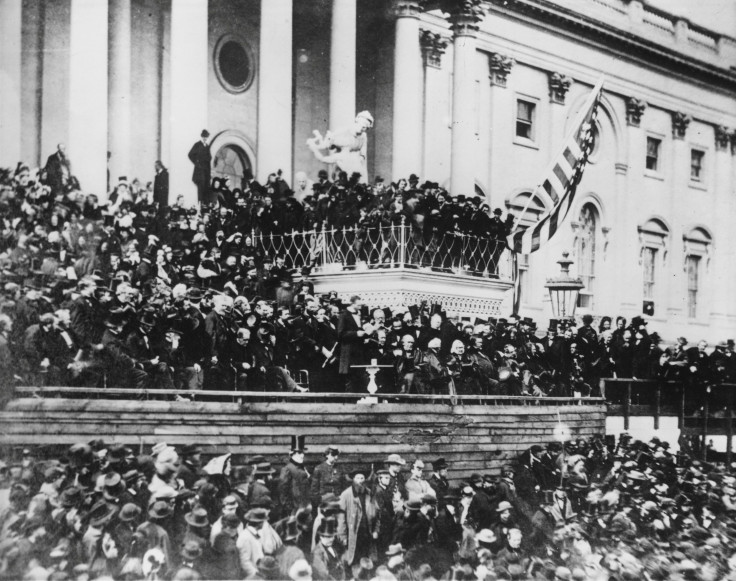On This Day: Abraham Lincoln Shot In The Head By Actor John Wilkes Booth
KEY POINTS
- On this day, 156 years ago, Abraham Lincoln was assassinated while watching a play at Washington, D.C.'s Ford Theater
- John Wilkes Booth, the assassin, was a Confederate sympathizer and hoped to throw the government into disarray
- Booth slipped unnoticed into Lincoln's theater box and shot him in the head with a single bullet before fleeing the scene
It was on this day, exactly 156 years ago, when one of the greatest presidents America has ever had was assassinated.
On April 14, 1865, Abraham Lincoln was attending the play “Our American Cousin” at Ford's Theater in Washington, D.C., when John Wilkes Booth entered the president's box and shot him in the back of his head with a single bullet. Lincoln died the next day.
On that fateful night, Booth was able to slip quietly inside Lincoln's theater box when the latter's guard, John Parker, left his post to get a beer out of boredom during the play. It is said that Booth, upon shooting the president's head, shouted, “Sic semper tyrannis! (Ever thus to tyrants!) The South is avenged,” as he jumped from the balcony to escape.
Booth was tracked down and killed after a 12-day manhunt, having been shot while hiding inside a burning barn in Virginia. On April 26 of that year, surrounded by thousands of Union troops, Booth met his end in Richard Garrett's farm when he was shot by Corporal Boston Corbett, according to History.com.
Lincoln is known by Americans to have been one of the most exceptional leaders the country has ever had. Aside from leading the country during the American Civil War, the president led with compassion and pushed for the freedom of slaves throughout the nation -- a sentiment Booth did not share.
Booth, a well-regarded professional stage actor in the South, was a devout supporter of slavery and a fierce Confederate sympathizer during the Civil War. With the help of other conspirators, Booth planned to have Lincoln assassinated on the same night as his two other possible successors, Andrew Johnson and William Seward, in hopes of sending the government into disarray.
Out of the three assassinations planned for that night, only that of Lincoln's succeeded. One of Booth's co-conspirators backed out of his part to kill Johnson, while the other was only able to wound Seward.
Only three days before the murder of Lincoln, Booth attended one of his speeches and reacted strongly to the president's suggestion to pursue voting rights for Black people. “Now, by God, I’ll put him through," Booth said angrily -- a vow he would later complete, that fateful night on April 14.

© Copyright IBTimes 2024. All rights reserved.




















